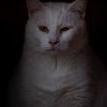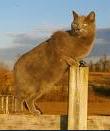The fear of science is driving a Luddite left, and has been holding back Western advancement, and human improvement, for close to two generations.
The Dirt On Earth Day
A couple of years ago seventh graders at a tony private school outside San Francisco were given an unusual Earth Day assignment: Make a list of environmental projects that could be accomplished with Bill Gates’ fortune. This approach to environmental awareness fits in well with the Obama-Pelosi-Reid worldview that the right to private property is subsidiary to undertakings that others think are worthwhile – the redistributive view of government. And how interesting that the resources made “available” for the students’ thought-experiment were not, say, the aggregate net worth of the members of Congress or of major league baseball players but the wealth of one of the nation’s most successful, innovative high-tech entrepreneurs.
Another Earth Day assignment for those same students was to read Rachel Carson’s best-selling book, “Silent Spring,” an emotionally charged but deeply flawed excoriation of the widespread spraying of chemical pesticides for the control of insects. As described by Roger Meiners and Andy Morriss in their scholarly yet very readable analysis, “Silent Spring at 50: Reflections on an Environmental Classic,” just published by the Property and Environment Research Center (Bozeman, MT), Carson exploited her reputation as a well-known nature writer to advocate and legitimatize “positions linked to a darker tradition in American environmental thinking: neo-Malthusian population control and anti-technology efforts.”
Carson’s proselytizing and advocacy led to the virtual banning of DDT and to restrictions on other chemical pesticides in spite of the fact that “Silent Spring” was replete with gross misrepresentations and scholarship so atrocious that if Carson were an academic, she would be guilty of egregious academic misconduct. Carson’s observations about DDT were meticulously rebutted point by point by Dr. J. Gordon Edwards, Professor of Entomology at San Jose State University, a long-time member of the Sierra Club and the Audubon Society, and a fellow of the California Academy of Sciences. In his stunning 1992 essay, “The Lies of Rachel Carson,” Edwards demolished her arguments and assertions and called attention to critical omissions, faulty assumptions, and outright fabrications.
Consider this quote from Edwards’ essay: “This implication that DDT is horribly deadly is completely false. Human volunteers have ingested as much as 35 milligrams of it a day for nearly two years and suffered no adverse effects. Millions of people have lived with DDT intimately during the mosquito spray programs and nobody even got sick as a result. The National Academy of Sciences concluded in 1965 that ‘in a little more than two decades, DDT has prevented 500 million [human] deaths that would otherwise have been inevitable.’ The World Health Organization stated that DDT had ‘killed more insects and saved more people than any other substance.’”
Meiners and Morriss conclude correctly that the influence of “Silent Spring” on modern environmentalism “encourages some of the most destructive strains within environmentalism: alarmism, technophobia, failure to consider the costs and benefits of alternatives, and the discounting of human well-being around the world.” Sounds like the mission statement of the U.S. Environmental Protection Agency. continue here
Subscribe to:
Post Comments (Atom)


























































No comments:
Post a Comment